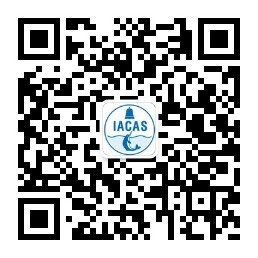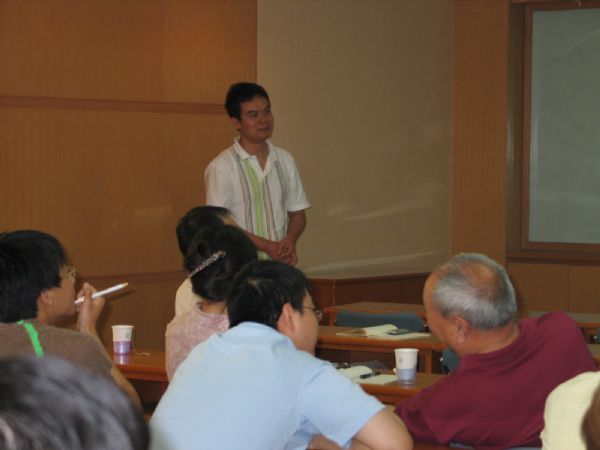
Ultrasonic Physics and Testing Lab held the 5th session of the series academic activities in Room 218, Dezhao Building on Jul. 13. This activity was anchored by the Lin Weijun. Prof. Li Mingxuan, Prof. Zhang Hailan, Prof. Guo Chengbin, Prof. Mao Jie and some students attended the seminar. All together 3 reportes were presented to the audience. The 3 reporters were Zhou Changzhi, Zhang Han and Wang Yang. They were all postgraduates, which made this activity more distinctive.
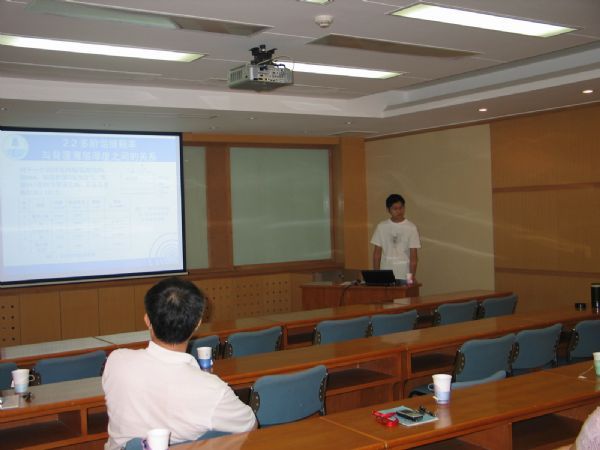
The first report was made by Zhou Changzhi's group titled "Inversion detection of multi-structure back thin-bed thickness through multi-stage resonant frequency". In the report, he first stated the relationship between multi-stage resonant frequency and multi-structure back thin-bed thickness. In his research, he surveyed the influence of acoustic impedance, propagation time and sound attenuation. Then he presented his experiment results that it was effective to inverse the back thin-bed thickness through multi-stage resonant frequency obtained by simulated annealing method.
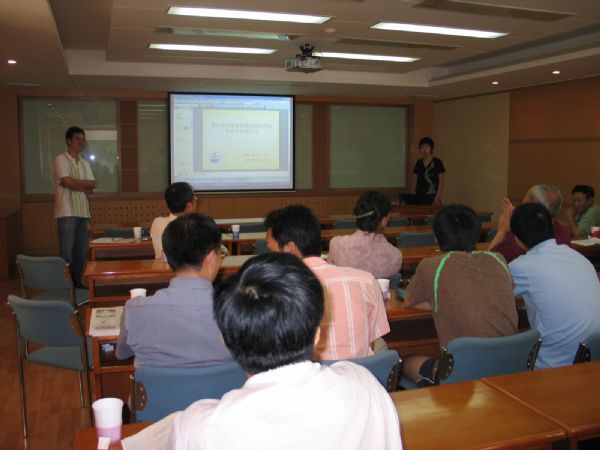
Zhang Han's group gave us the report titled "Narrow pulse signal detecting obtained from new ultrasonic stimulus transducer system". In their research, they established a new stimulus transducer system and obtained a period of echo narrow band signal, whose sensitivity was very high. This research result was to apply for the patent.
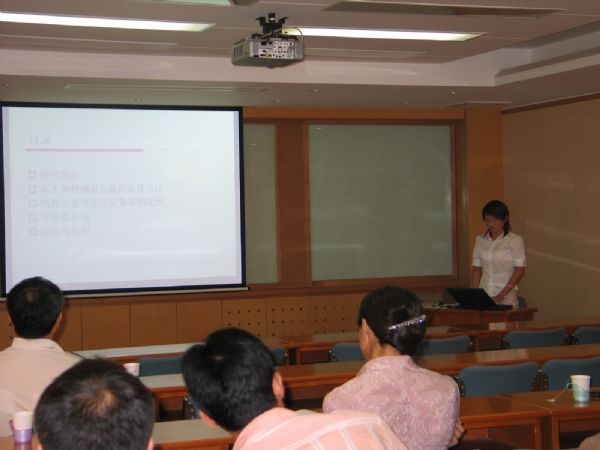
The third report was done by Wang Yang's group named "Low frequency ultrasonic inversion characterization research of solid plate and back thin-layer physical parameters". He brought the definition of sensitivity into the low frequency ultrasonic inversion characterization and compared the sensitivity got by resonance frequency inversion and spectrum inversion. The research results showed the spectrum method was better than the resonance frequency one. However, there were still some problems, such as the measuring error of spectrum amplitude.
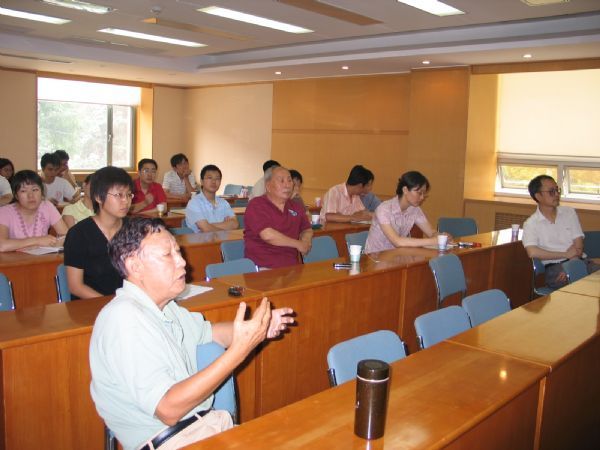
At the end of the activity, Prof. Li Mingxuan made a conclusion: first, he pointed out these researches were very difficult and practical and the students made an attempt to solve applied problems by conventional method; on the other side, he put forward higher requirement to the speakers' explanation methods and skills. Prof. Zhang Hailan also advised providing more opportunities for the young researchers to exchange ideas and encouraged them to raise more questions and have more discussions.


